Chinese food plays cultural ambassador
Updated: 2016-05-02 05:00
By AMY HE in New York(China Daily USA)
|
||||||||
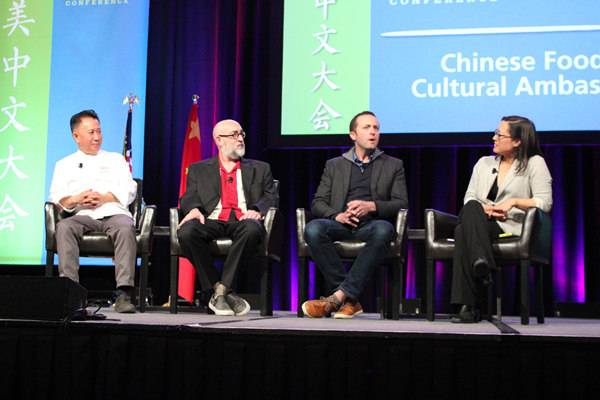 |
|
Food experts speak about Chinese cuisine during the 2016 National Chinese Language Conference in Chicago. From left: Martin Yan, chef and TV personality; Howie Southworth, cookbook author; Ian Cheney, documentary filmmaker; and Monica Eng, food reporter at Chicago Public Radio. AMY HE / CHINA DAILY |
For many Americans, Chinese food is their first gateway into Chinese culture — something that has become incredibly prevalent in America and continues to provide some semblance of what China is and how its 1.4 billion people live.
Chinese cuisine went from being something only served at restaurants to something that's readily accessible to customers, making it the "best bridge and best ambassador" for Chinese culture, said Martin Yan, a Chinese-American chef most known for his award-winning PBS show Yan Can Cook.
"I remember when I first came over here, when I went to the supermarkets, all I saw was beanstalks. At the most, there was tofu. But now, anywhere you go, every single supermarket you'll see an entire aisle with Asian seasoning — not just Chinese, but Korean, Vietnamese, Thai," he said.
"You go to the produce department, you see bok choy, long beans, Nappa cabbage, even taro or water chestnut. I think Chinese food — or Asian food — has become more mainstream," he said, speaking at a panel discussion on Chinese food at the 2016 National Chinese Language Conference held in Chicago on April 29.
Documentary filmmaker Ian Cheney talked about his experience making The Search for General Tso, a 2014 film about General Tso's chicken, one of the most iconic Chinese-American dishes and one popularly identified with Chinese food for Americans.
Cheney was working on a film about corn in the US when he and a partner popped into a Chinese restaurant and he ordered his usual, General Tso's chicken. The dish is a sweet and spicy chicken concoction served at most Chinese-American restaurants, and it got Cheney wondering: just who is General Tso and what is the origin of the dish?
Through making the documentary, Cheney talked to Chinese chefs across the US about the dish and went to Central China's Hunan province, where General Tso — whose real name is Zuo Zongtang — was born and is a celebrated figure.
"I think food is for many people their first window into a place they may not have traveled to. It's kind of a weird window — as we all have experienced, food adapts as it travels around the world, the chefs who are preparing these foods and adapting by using local materials, local flavors, but also to meet in the middle with their audience. There's this constant, crazy reinvention," he said.
"As Chinese restaurants began popping up all over the culture, people started associating Chinese food and Chinese culture with positive family memories, and I think that shifted a little bit the cultural exchange and the cultural attitudes in America," he said.
Howie Southworth, cookbook author and video producer, said that even in the most basic way for Americans who have no knowledge of Chinese food, going to a Chinese restaurant was an experience unto itself.
"Even from my childhood, when you go to the restaurants, you do get a little bit of the culture — we all learn what animal year we were born in, and we all got crayons to color in the Great Wall, which must surround this mysterious place called China. It opened the world a little bit," he said.
"Every once in a while a new cuisine comes in, and I think that door opens just a little bit wider, because there's a new kind of cuisine that people can wrap their minds around, not just think Hunan, Sichuan, so forth," he said.
- UN urges DPRK to stop 'further provocative action'
- China stresses Putin's expected visit
- British FM visits Cuba for 1st time since 1959
- Trump attacks Clinton on gender, risking backlash from women
- Pirate radio poses surprising challenge in internet age
- DPRK's Musudan missile launch appears to have failed

 Top 10 luxury cars at the 14th Beijing auto show
Top 10 luxury cars at the 14th Beijing auto show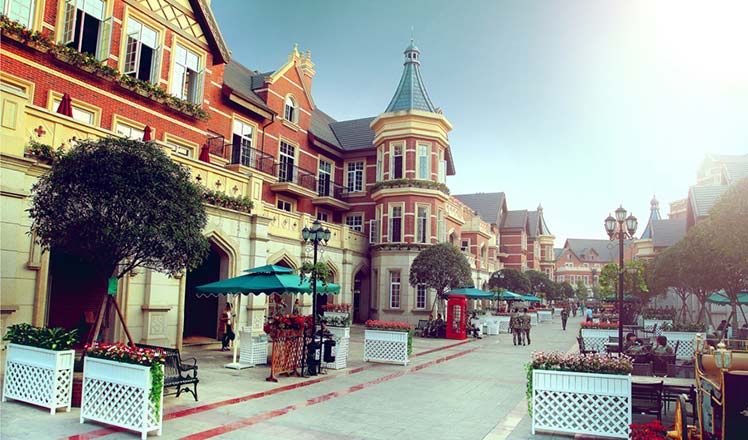
 European castle-style campus wows in Southwest China
European castle-style campus wows in Southwest China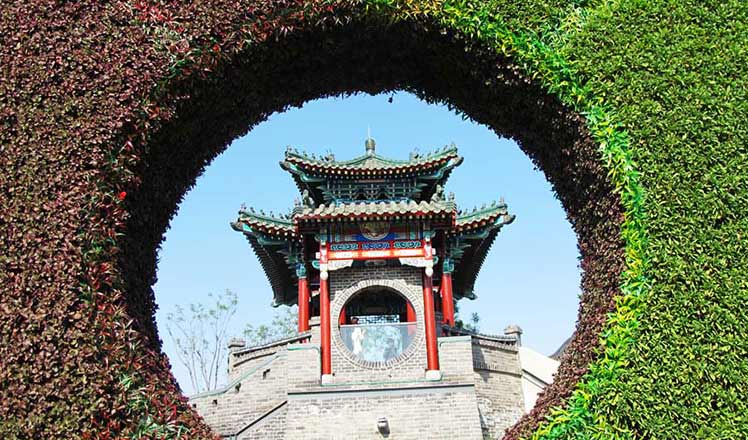
 Industrial city reinvents itself as green oasis
Industrial city reinvents itself as green oasis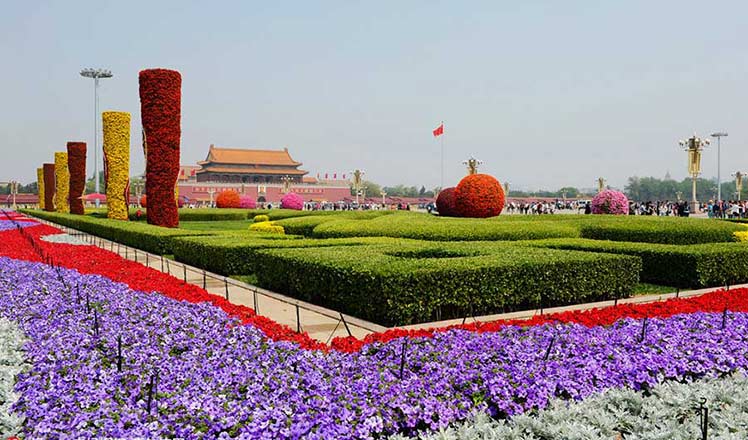
 Tiananmen Square decorated as May Day holiday approaches
Tiananmen Square decorated as May Day holiday approaches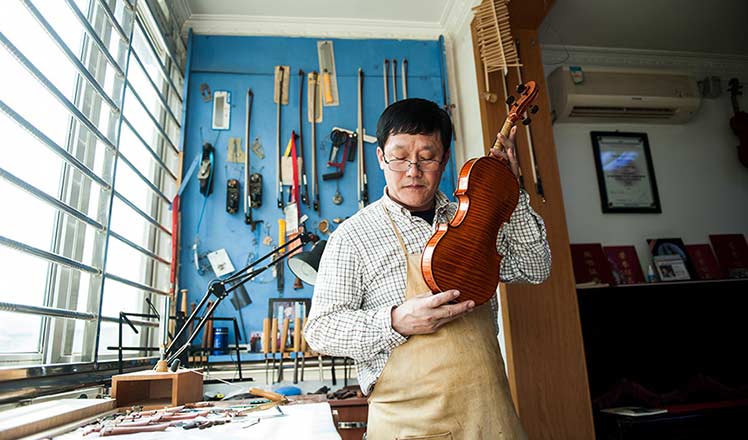
 Snapshots of modern-day Chinese at work
Snapshots of modern-day Chinese at work
 Top 10 dazzling new car models at Beijing auto show
Top 10 dazzling new car models at Beijing auto show
 London's Big Ben to fall silent for urgent repairs
London's Big Ben to fall silent for urgent repairs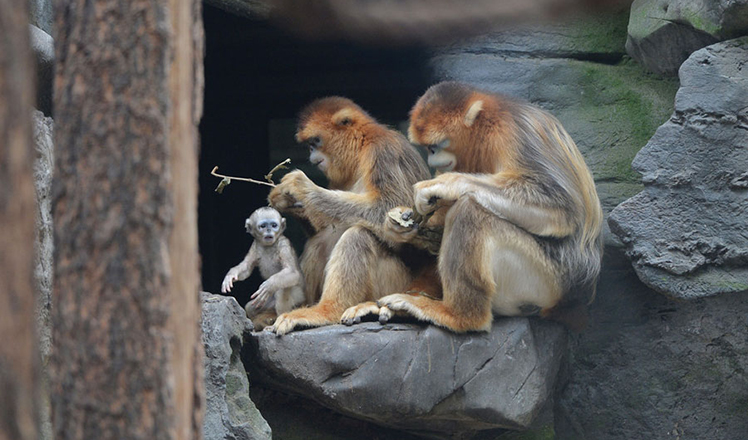
 Rare snub-nosed monkeys at Beijing Zoo
Rare snub-nosed monkeys at Beijing Zoo
Most Viewed
Editor's Picks

|

|

|

|

|

|
Today's Top News
Liang avoids jail in shooting death
China's finance minister addresses ratings downgrade
Duke alumni visit Chinese Embassy
Marriott unlikely to top Anbang offer for Starwood: Observers
Chinese biopharma debuts on Nasdaq
What ends Jeb Bush's White House hopes
Investigation for Nicolas's campaign
Will US-ASEAN meeting be good for region?
US Weekly

|

|









